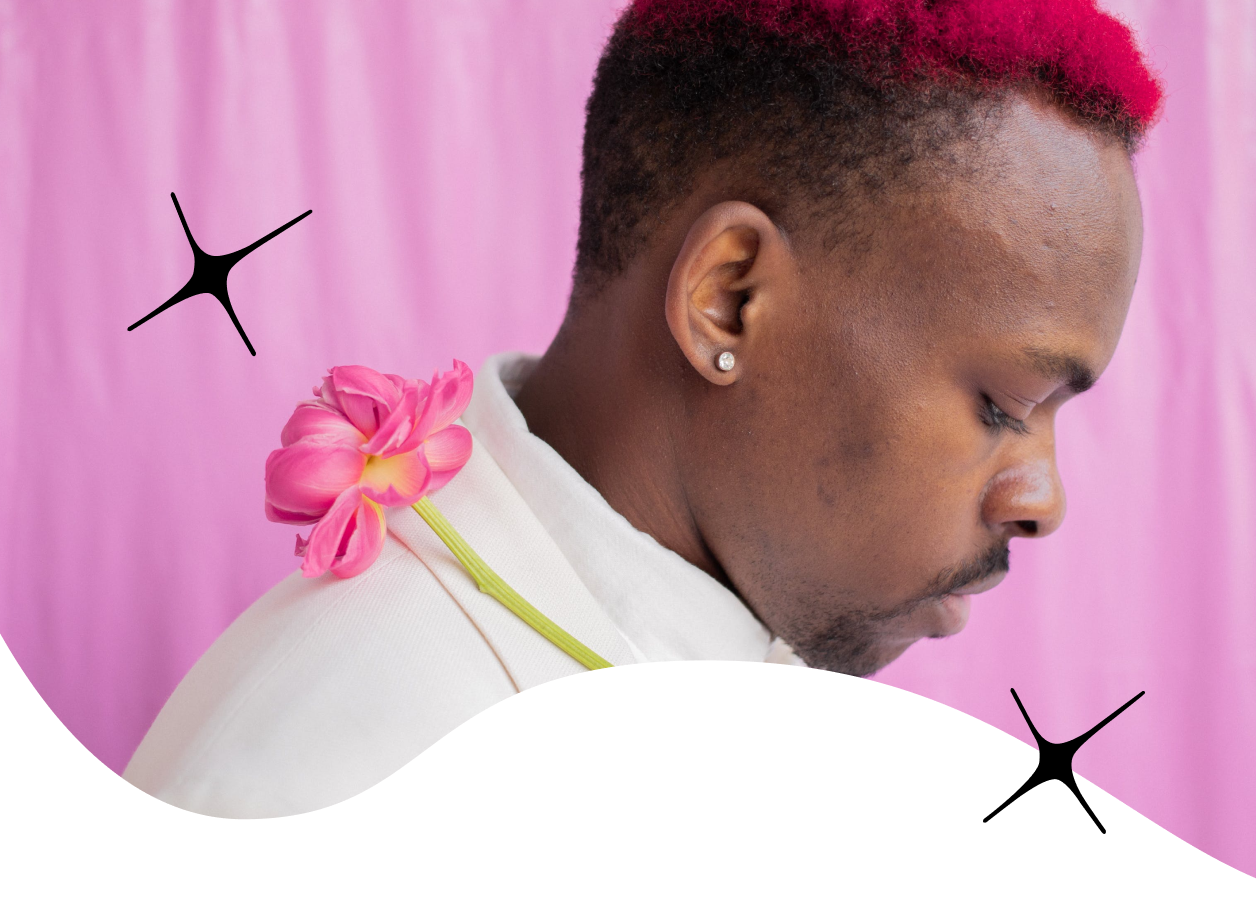A great relationship doesn't just avoid red flags—it's full of green ones that make your heart feel at home. These moments, traits, and vibes scream, "You're onto something amazing!" Ready to spot the signs of love done right? In this article, Flure explains the 13 green flags that show your relationship is pure gold.

What Are Green Flags in Relationships?
Green flags are the positive signals in a relationship that indicate compatibility, emotional health, and potential for long-term happiness. They’re the moments, behaviors, and attitudes that reassure you that you’re in a strong, nurturing partnership. Let’s dive into 13 key green flags to help you recognize and celebrate a healthy relationship.
1. Effective communication
Good communication is the foundation of a successful relationship. It means both partners feel comfortable expressing their feelings, needs, and concerns without fear of judgment or dismissal. Active listening, empathy, and clarity make conversations meaningful and help resolve conflicts constructively.
Example: During a disagreement about weekend plans, your partner listens to your concerns, validates your feelings, and works with you to find a compromise that makes both of you happy.
2. Mutual respect
Mutual respect ensures that both individuals feel valued for who they are. It means recognizing and appreciating each other's boundaries, opinions, and individuality. Respect fosters equality and creates a safe space for personal and shared growth.
Example: Your partner respects your need for alone time after a busy day and doesn’t take it personally, showing understanding of your boundaries.
3. Trust and security
A relationship with trust and security feels safe and stable. Both partners can rely on each other, knowing their bond isn’t threatened by dishonesty or unpredictability. Trust takes time to build, but it’s a cornerstone of emotional connection.
Example: You leave your phone unlocked around your partner without a second thought because you both trust each other fully.
4. Consistent support
Supportive partners are there for you during life’s highs and lows. They cheer you on when you succeed and comfort you when things get tough. This consistency builds a deep sense of connection and partnership.
Example: When you’re preparing for a big presentation, your partner offers to help you practice or simply reminds you of your capabilities to boost your confidence.
5. Shared values and goals
Sharing similar values and long-term goals creates alignment in your relationship. It doesn’t mean agreeing on everything, but having a common vision for the future helps you grow together rather than apart.
Example: You both prioritize saving for a house because you share a mutual dream of building a stable future together.
6. Emotional availability
A green flag is when both partners are open and willing to share their feelings. Emotional availability allows for vulnerability, deepening the connection and ensuring both people feel seen and understood.
Example: Your partner openly shares their struggles at work and trusts you to offer understanding, rather than bottling up emotions.
7. Healthy boundaries
Respecting boundaries is essential for maintaining individuality in a relationship. Healthy boundaries ensure that both partners have the space to pursue personal interests and maintain their identities.
Example: Your partner encourages you to spend time with your friends, even if they’re not included in the plan.
8. Conflict resolution skills
Disagreements are inevitable, but how you handle them matters. A green flag is when conflicts are addressed calmly and constructively, with a focus on solutions rather than blame.
Example: After a heated debate, your partner apologizes for their tone and suggests ways to avoid miscommunication in the future.
9. Equality in effort
A healthy relationship thrives on equal effort from both partners. It’s about sharing responsibilities, emotional labor, and decision-making without one person carrying the load.
Example: Both of you take turns planning date nights or handling chores, ensuring the relationship feels balanced.
10. Empathy and compassion
Empathy means understanding and sharing your partner’s feelings, while compassion drives actions to support them. These qualities create a nurturing and understanding dynamic.
Example: When you’re feeling overwhelmed, your partner notices and offers to help, showing care and concern.
11. Playfulness and fun
A touch of playfulness keeps the relationship light-hearted and joyful. Shared humor and the ability to enjoy each other’s company strengthen your bond.
Example: You have inside jokes that never fail to make you both laugh, even on tough days.
12. Encouragement for growth
A great partner supports your personal growth and celebrates your achievements. They motivate you to chase your dreams without feeling threatened or insecure.
Example: Your partner encourages you to pursue a career change, even if it means temporarily shifting routines, because they believe in your potential.
13. Consistent affection
Regular expressions of affection, both physical and emotional, are signs of a loving relationship. Affection reassures both partners of their bond and strengthens intimacy.
Example: Your partner holds your hand in public, leaves sweet notes, or simply says “I love you” often, making you feel cherished.
Red or Green Flag Questions

Sometimes, asking the right questions can help you identify whether you’re dealing with a red flag to address or a green flag to celebrate. Here are some thought-provoking questions to evaluate your relationship dynamics:
1. Do they respect your boundaries?
- Green Flag: They listen, honor your limits, and never make you feel guilty for setting them.
- Red Flag: They push against your boundaries or disregard them altogether.
2. How do they handle disagreements?
- Green Flag: They approach conflicts calmly, focus on solutions, and are open to compromise.
- Red Flag: They escalate arguments, blame you, or refuse to communicate.
3. Do they encourage your growth and passions?
- Green Flag: They celebrate your successes and motivate you to pursue your goals.
- Red Flag: They feel threatened by your growth or belittle your achievements.
4. How do they respond when you’re upset?
- Green Flag: They show empathy, listen attentively, and offer support.
- Red Flag: They dismiss your feelings, make it about themselves, or get defensive.
5. Do they follow through on their promises?
- Green Flag: They’re dependable and keep their word.
- Red Flag: They constantly make excuses or break promises without explanation.
6. Are they open and honest with you?
- Green Flag: They share their thoughts and feelings openly and value honesty.
- Red Flag: They’re secretive, avoid tough conversations, or lie.
7. Do they take accountability for their actions?
- Green Flag: They acknowledge mistakes and make genuine efforts to improve.
- Red Flag: They deny, deflect, or blame others.
8. How do they treat others, especially in service roles?
- Green Flag: They’re kind, respectful, and considerate to everyone, regardless of status.
- Red Flag: They’re rude, dismissive, or entitled toward others.
9. Do they share similar values and goals with you?
- Green Flag: You align on important topics like family, finances, or lifestyle.
- Red Flag: There’s constant tension because your priorities clash.
10. Do you feel safe and secure around them?
- Green Flag: You feel emotionally and physically safe, with no fear of judgment or harm.
- Red Flag: You feel anxious, on edge, or uncertain about their intentions.
11. Do they make an effort to communicate effectively?
- Green Flag: They actively listen, validate your feelings, and express themselves clearly.
- Red Flag: They avoid communication or frequently resort to passive-aggressive behavior.
12. How do they respond to your successes?
- Green Flag: They’re genuinely happy for you and celebrate your wins.
- Red Flag: They act indifferent, jealous, or try to downplay your achievements.
13. Do you feel like a team?
- Green Flag: You face challenges together, share responsibilities, and support each other.
- Red Flag: It often feels like you’re carrying the relationship alone.
Read our article about red flags in a relationship
Conclusion
Green flags are like the GPS of a healthy relationship—they guide you toward love that’s safe, respectful, and built to last. Sure, love can be messy, but these signs show you it’s the good kind of messy, not the kind that leaves you second-guessing. Spot the green flags, trust them, and let them lead you to something real.
Flure isn’t just a dating app—it’s your gateway to meaningful connections and unforgettable experiences. Whether you’re seeking new friendships, someone special, or just exploring, Flure makes it easy to find your kind of people. Built on trust, safety, and authenticity, Flure turns your online dating into something truly magical. Ready to make connections that matter? Join Flure today and see where it takes you!
FAQ
What is a green flag in a relationship?
A green flag in a relationship is a positive sign that shows your partnership is built on trust, respect, and mutual care. It’s a signal that the relationship is healthy and has the potential to thrive. Green flags include open communication, shared values, and consistent support from your partner.
What are the five green flags?
- Effective Communication: You can talk openly and resolve conflicts respectfully.
- Mutual Respect: Both partners honor each other’s individuality and boundaries.
- Trust and Security: You feel safe and confident in the relationship.
- Shared Values: You align on major life goals and priorities.
- Consistent Support: Your partner stands by you through ups and downs, cheering for your success and comforting you in challenges.
What is the biggest green flag in a guy?
The biggest green flag in a guy is emotional availability. A man who communicates his feelings honestly, listens to yours, and supports your emotional well-being shows he’s invested in building a strong, healthy relationship.
What’s the biggest green flag in a woman?
The biggest green flag in a woman is mutual respect. A woman who values your opinions, supports your goals, and fosters a partnership built on equality and understanding is showing she’s ready for a healthy, loving relationship.








